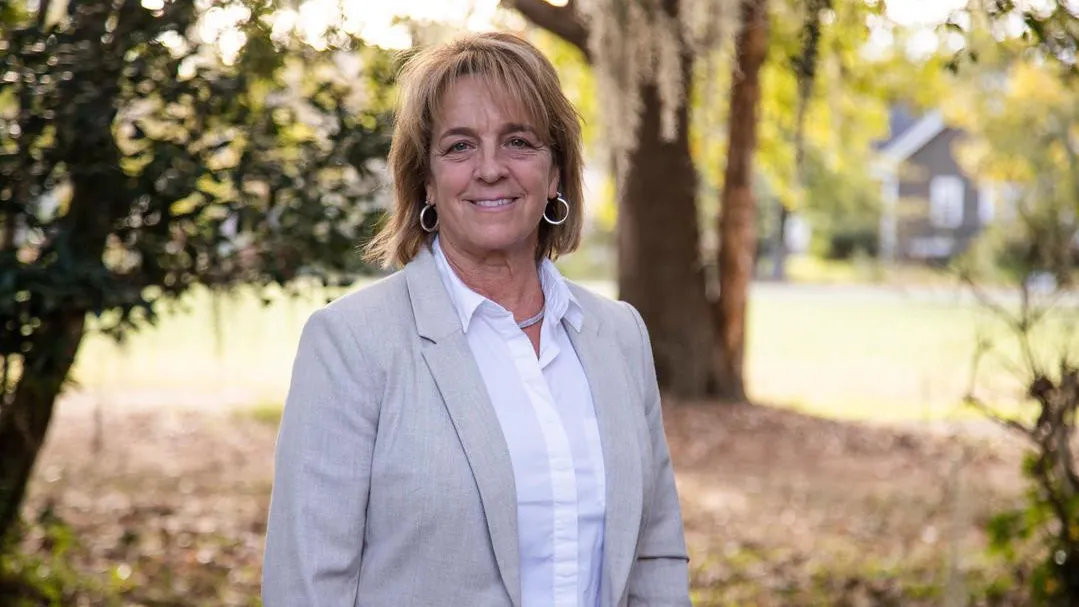Joe Gutierrez | CSUSB Office of Strategic Communication | (951) 236-4522

Kristin Graziano, sheriff of Charleston County, S.C., will present “Making History and Removing Barriers: Recognizing Disparities and Holding the Sheriff’s Office More Accountable,” at the next Conversations on Race and Policing, 3 p.m. Wednesday, May 19, on Zoom.
Graziano’s talk will be presented on Zoom and can be accessed from a PC, Mac, Linux, iOS or Android at the program’s Zoom link.
A veteran of 20 years in law enforcement, Graziano was elected Charleston County’s top law enforcement officer in 2020. During her career, she has recognized that the Charleston County Sheriff’s Office’s role in racial profiling had destroyed the relationship between the community and the police.
For example, her predecessor had implemented what is known as the 287(g) partnership with U.S. Immigration and Customs Enforcement, an optional policy that, among other things, allows local officers, with the authorization of ICE, to identify, process, and when appropriate, detain undocumented immigrants. Although the ICE website on the 287(g) program declares that racial profiling would not be tolerated, Graziano argued in an op-ed column in March 2021 that such a partnership “hampered the Charleston County Sheriff’s Office ability to protect the community.”
“A sheriff is sworn to protect and serve all county residents, not just American citizens,” she wrote. “The 287(g) program injected fear and distrust of law enforcement in the immigrant community, meaning that even immigrants who were victims of crime or were witness to one wouldn’t reach out to help.
“Since I won election in November, my first priority has been reestablishing trust within the immigrant community. On Jan. 5, my first full day in office, I rescinded our detention center’s agreement with ICE to participate in this program,” Graziano wrote. “I gathered supporters and members of the immigrant community to watch me sign the papers, and in front of the media, I apologized for my sheriff’s office’s complicity with racial profiling associated with 287(g). It is my belief that the program contradicts efforts to build sustainable relationships.”
Her department is currently being put to the test after a mental health patient died in custody at Charleston County’s jail on Jan. 5. Authorities are not sure why he died. Graziano said she supports the release of the video of the encounter with the man, Jamal Sutherland, and deputies, when the timing is appropriate. But she also cited an ongoing investigation and said that Sutherland’s family was not ready to have the video made public.
Conversations on Race and Policing began in the aftermath of the May 25 death of George Floyd while in the custody of four Minneapolis, Minn., police officers. A video of the incident posted on social media has led to widespread protests, the firing of four police officers, the arrest and conviction of one officer on a second-degree murder and related charges, the other three on charges of aiding and abetting second-degree murder – and a spotlight worldwide on race and policing.
Previous forums also are posted online (more recordings will soon be available for viewing) on the CSUSB History Club Lecture Series YouTube channel.
The series is organized by CSUSB students Marlo Brooks, Zoralynn Oglesby and Evelyn Jimenez, and university faculty members Mary Texeira (sociology) and Jeremy Murray (history), Robie Madrigal, public affairs/communication specialist for the CSUSB John M. Pfau Library, and community member Stan Futch, president of the Westside Action Group.
For more information, contact Robie Madrigal at rmadriga@csusb.edu or Jeremy Murray at jmurray@csusb.edu.